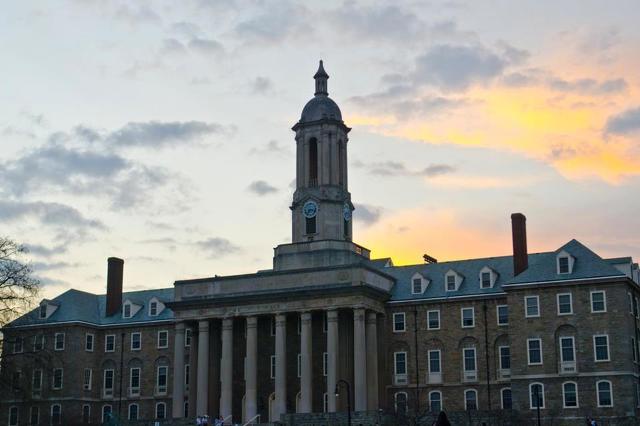An undergraduate student filed a federal class-action lawsuit against Penn State’s Board of Trustees on Thursday over the university’s decision not to provide pro-rated tuition and fees refunds following the closing of campus and move to remote instruction in March.
The complaint, filed in U.S. Middle District Court of Pennsylvania by Tyler Thomson, a communications student from New Jersey, alleges breach of contract and unjust enrichment by Penn State.
Like other universities across the country, Penn State suspended in-person classes beginning March 16 and shifted to remote instruction for the remainder of the semester. The university did provide pro-rated room and board refunds but said it would not refund tuition as classes continued.
Thomson, who filed the lawsuit individually and ‘on behalf of all other similarly situated,’ acknowledged that ‘closing campuses and transitioning to online classes was the right thing to do,’ but that the decision left him and other students without ‘the benefits of in-person instruction, access to campus facilities, student activities, and other benefits and services in exchange for which they had already paid tuition and fees.’
His attorney, Stuart Carpey, wrote that Thomson and other students purposely chose to attend Penn State on in-person basis.
‘Common sense would dictate that the level and quality of instruction an educator can provide through an online format is lower than the level and quality of instruction that can be provided in person,’ Carpey wrote.’Moreover, the true college experience encompasses much more than just the credit hours and degrees.’
Thomson and other students, Carpey wrote paid tuition and fees to attend classes on campus for the semester starting January 13 and concluding May 8, but that with the campus closure in March, 47 percent of the semester will have been conducted online.
The online instruction ‘is not commensurate with the same classes being taught in person,’ Carpey wrote. Some classes are not being live streamed, with professors instead uploading pre-recorded lectures, while some others are uploading assignments with no accompanying video instruction, according to the complaint.
In April, Penn State announced summer sessions would take place remotely, with the possibility of a return to campus later in the summer if circumstances allow. The university also modified tuition rates for the summer.
‘…[T]he only difference between Defendant’s decision to discount online classes for the summer and not discount online classes for the spring is that Defendant has already collected tuition for the spring semester and spring semester students have no recourse, whereas Defendant has not yet collected tuition for the summer term and Defendant knows many students will not agree to pay full price tuition for online classes during that upcoming term,’ Carpey wrote.
Thomson and other students also are deprived of access to facilities and activities that are supported by mandatory fees, Carpey wrote.
The lawsuit claims two counts each of breach of contract and unjust enrichment and is seeking the refund of ‘amounts wrongfully obtained for tuition and fees.’



